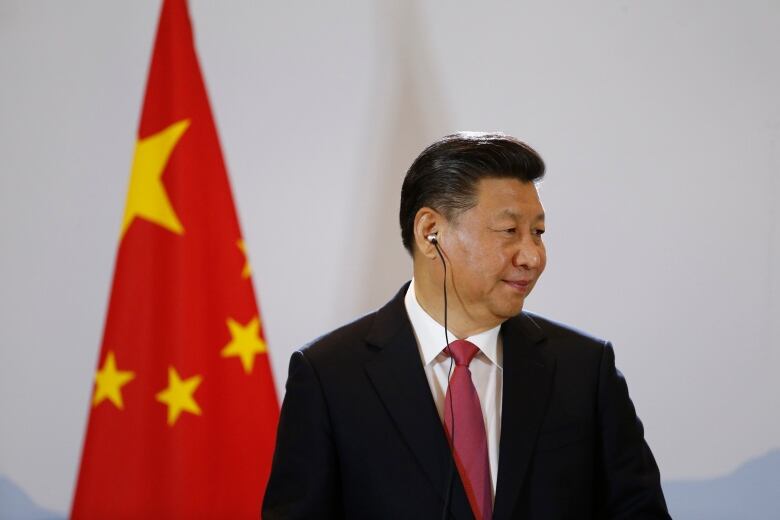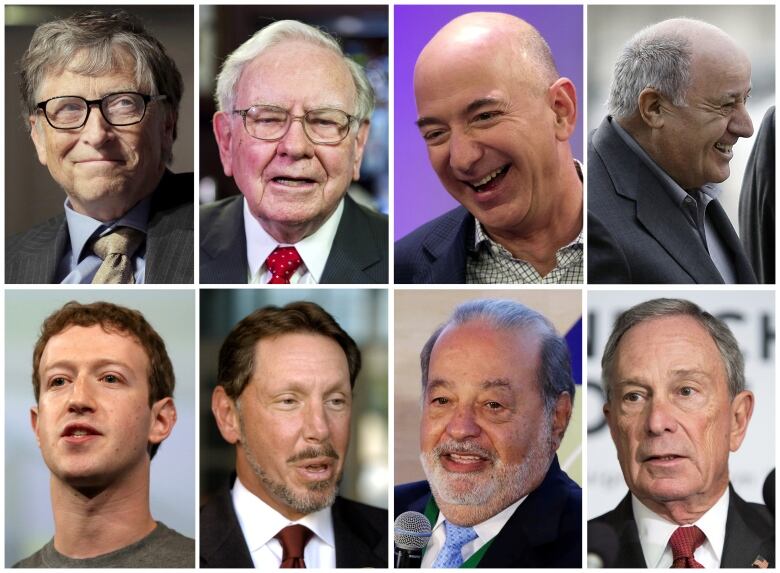Top-down solutions from Davos elite out of step with populist anger: Don Pittis
No substitute for letting ordinary people think for themselves

In the Swiss resort town of Davos amidthe glare ofmedia attention, movie stars, billionaires and politicians have gatheredonce again to tell us what we are doing wrong and how to start doing things right.
It'sliketheOscars in the Alps, a glimpse ofthe one per cent in their opulent elementtaking theirmittens off to shake their fingers at us.
This year's theme forthe high-powered talking shop, "responsive and responsible leadership," seems somewhat ironic given the appearance of Chinese leader Xi Jinping at the conference, a first for a Chinese president and Communist Party general secretary.

The improbable imageof billionaires instructing us on inequality, of world-spanning jet-setters warning us about climate change and autocrats advising on responsible government would be funny if their words weren't reported so seriously.
And the citizens of the world are taking note.
Populist unrest
The election of Donald Trump, the Britishvote to leave the European Union, and gatheringpopulist unrest around the world are all evidence of an anti-elitereaction.
Tired of condescension from the U.S. political class, many U.S. voters think they have found themselves a champion.
Others would saythat Trump, despite his common manner and simple turns of phrase,is just a representative of another kind of elite,a self-interested billionaire with a chip on his shoulder who doesn't play well with other billionaires.
The fact is,elites of all kinds have different interests from the rest of us.

Globalization, one of the principles that Davos has consistently championed, is an example of thattop-down thinking thatfails to appeal to an increasing number ofvoters.
Yes,globalization may have helpedthe world economy grow, as the IMF reported yesterday,but what difference does that make to the average voter when statistics repeatedly show that working people are not the beneficiaries?
Canada is an example of the problem seen in the U.S. and elsewhere. Economists celebrategrowing economies, but the share of productivity increases going to wages has plunged since the 1970s. The quality of Canadian jobs continues to fall.
Urgent reform needed
The rich and famous in Davos may have things right. Capitalism needs urgent reform, they say.
"The combination of economic inequality and political polarization threatens to amplify global risks, fraying the social solidarity on which the legitimacy of our economic and political systems rests," says the World Economic Forum report issued in advance of this week's Davos gathering.
They've said similar things before and still the trend worsens.

Starry-eyedvoters have been waiting for someone to step in and fix things for them. In the U.S., they got Trump.
The move to Trump may be a step in the right direction in that it represents an intentionalrejectionof elitethinking. But for U.S. citizens it may only be a first step.
The true anti-elitesolution may be frightening to the comfortable and the elite that is, for ordinary people toshake up the political and economic system,rebuild itandmake it work again from the bottom up.
Save yourselves

And that may mean setting aside some of the global values that Davoswants to promote.
Rather than international stars we needlocal musicians. Rather than global elites we need localheroes, localpoliticians, local ideas, local solutions.
Rejecting globalization seems like a backward step, but it may represent a repair phase, the same sentiment that led to Brexit and Trump, and is still not complete.
Growth ismeaninglessif the wages of ordinary people stagnate while the rich take their opinions toDavos.
Follow Don Pittison Twitter @don_pittis
More analysis from Don Pittis












_(720p).jpg)


 OFFICIAL HD MUSIC VIDEO.jpg)
.jpg)



























































































